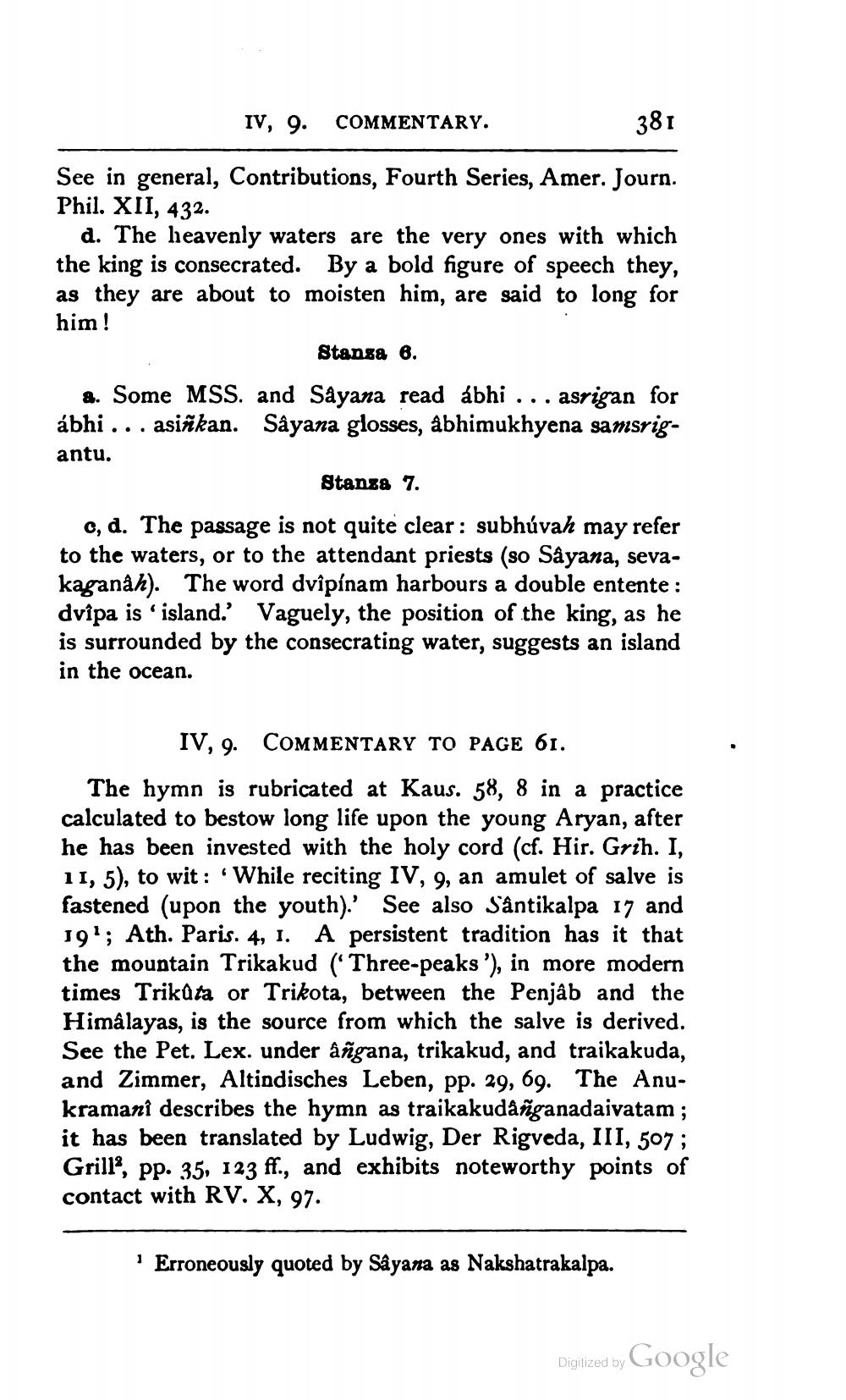________________
IV, 9. COMMENTARY.
381
See in general, Contributions, Fourth Series, Amer. Journ. Phil. XII, 432.
d. The heavenly waters are the very ones with which the king is consecrated. By a bold figure of speech they, as they are about to moisten him, are said to long for him !
Stansa 6. a. Some MSS. and Sayana read ábhi ... asrigan for ábhi ... asiñkan. Sayana glosses, abhimukhyena samisrigantu.
Stanza 7. c, d. The passage is not quite clear: subhúvah may refer to the waters, or to the attendant priests (so Såyana, sevakaganah). The word dvipínam harbours a double entente: dvipa is 'island. Vaguely, the position of the king, as he is surrounded by the consecrating water, suggests an island in the ocean.
IV, 9. COMMENTARY TO PAGE 61. The hymn is rubricated at Kaus. 58, 8 in a practice calculated to bestow long life upon the young Aryan, after he has been invested with the holy cord (cf. Hir. Grih. I, 11,5), to wit: 'While reciting IV, 9, an amulet of salve is fastened (upon the youth).' See also Sântikalpa 17 and 19!; Ath. Paris. 4, 1. A persistent tradition has it that the mountain Trikakud ("Three-peaks '), in more modern times Trikuta or Trikota, between the Penjab and the Himalayas, is the source from which the salve is derived. See the Pet. Lex. under âñgana, trikakud, and traikakuda, and Zimmer, Altindisches Leben, pp. 29, 69. The Anukramani describes the hymn as traikakudåñganadaivatam ; it has been translated by Ludwig, Der Rigveda, III, 507; Grill', pp. 35, 123 ff., and exhibits noteworthy points of contact with RV. X, 97.
Erroneously quoted by Sâyana as Nakshatrakalpa.
Digitized by
Digitized by Google




